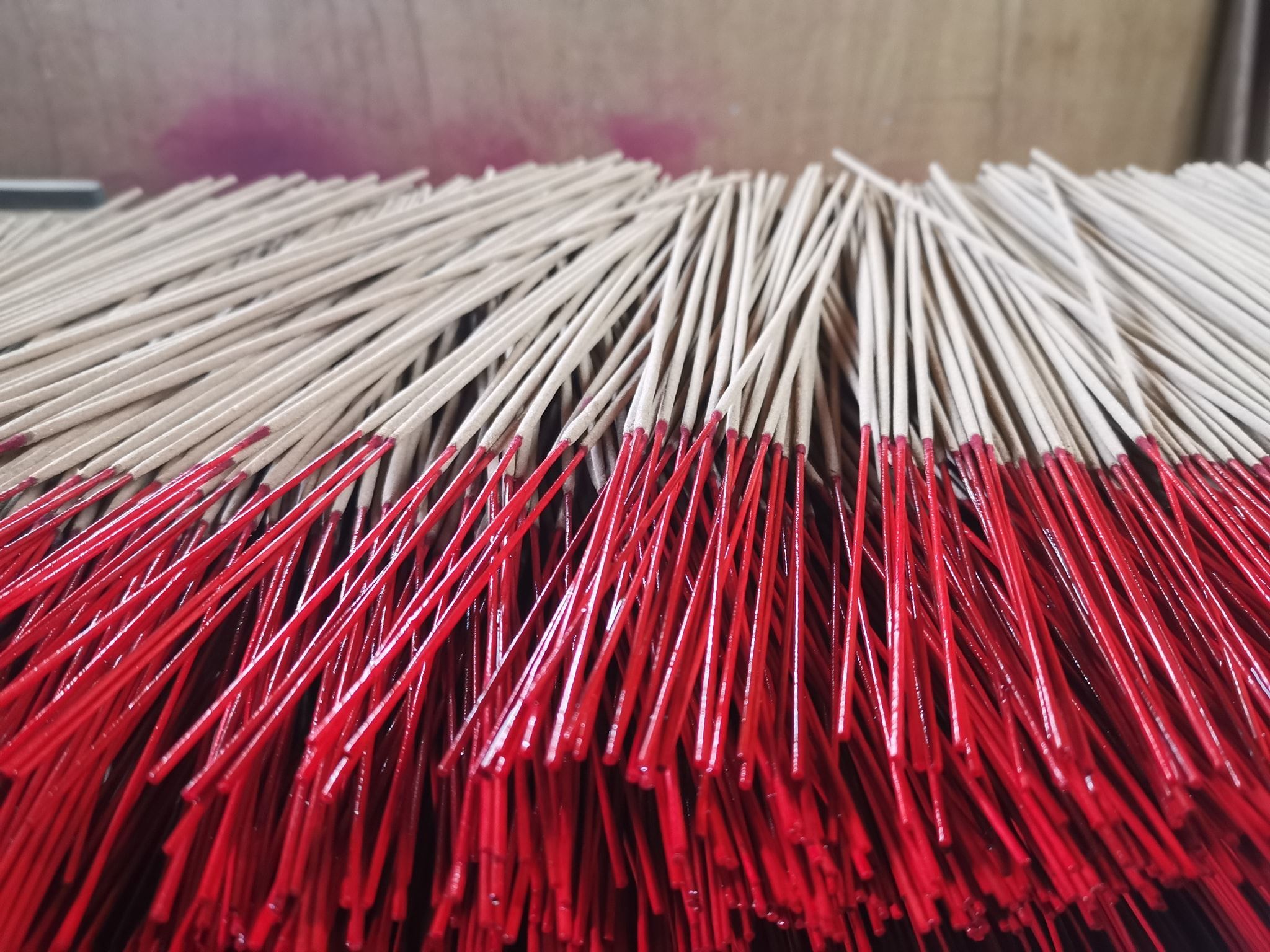"We're all closed"
In the past 2 months, the incense tooth making factories in An My commune, Quynh Phu district, Thai Binh province, one of the two largest incense making districts in the country, simultaneously closed.
“We are all closed, it has been nearly 2 months, all my workers have to quit their jobs, the factory is silent, the machines stop working. Currently, my family's inventory value is up to 370 million VND, ” said Nguyen Van Giap, An My commune, pointing to the amount of inventories piled up in piles of lamentation.
Mr. Nguyen Van Giap, An My commune, said his incense factory has been closed for nearly 2 months now.
More worrying, Mr. Giap said, most households producing incense are all borrowed from banks.
“Now, production is difficult, but bank loans still have to be paid. If there is a situation where the goods cannot be exported, we cannot turn around the capital. After a while, I don't know where to get money to pay the bank's debt, ” Giap said.
The inventory is piled up in Giap's warehouse.
According to calculations by Mr. Nguyen Van Giap, the whole province of Thai Binh has about 3,000 incense making machines, producing more than 3,000 tons of finished incense / month to serve the Indian market.
“Now most factories in the province stop working. Normally, each incense making machine needs 4 service workers, from production to packaging ... so nearly 12,000 workers lose their jobs, ” Giap said.
The workshop of manufacturing 14 machines with nearly 50 workers of Giap has been shut down for nearly 2 months
In the same scene as Mr. Giap, the workshop of producing incense sticks of Ms. Tran Thu, Quynh Phu district, Thai Binh province also fell into a very difficult situation. Ms. Thu said that her facility was closed since the beginning of September.
“At first I thought to myself, it seemed like my workshop had a few days off for the people to transplant and harvest, but now looking back at the“ season off ”it was too long. I've been closed for almost 2 months now. The produced goods do not know who to sell if India does not re-import , ” Ms. Thu said.
The risk of wiping out the domestic incense industry
According to Mr. Le Thanh Giang - Director of Eximani Vietnam Co., Ltd., India's sudden import of incense made his business "standing still".
“ I have quit all my workers. I still have 1 container of goods exported to India, but now the fate of this product is very ironic when the partner wants to pick up the goods but cannot get it, but for the goods back to Vietnam, I do not know who to sell it to, but if just leaving the goods at the port, the cost of storage continues to increase ", Mr. Giang said.
Mr. Giang added that the most worrying thing at the moment is that many Indian businesses are looking to companies producing Vietnamese incense machines to order.
“ Recently, we learned that 3 companies specialized in manufacturing incense machines have signed contracts to export to India about 100,000 incense machines. If this export is done, it will "wipe out" the domestic export incense producing industry, causing thousands of workers to lose their jobs.
Even now, in the craft villages, there is a situation of Indian businesses looking to buy second hand machines to bring back production there. If this situation continues, we will not be able to hold it any longer ”, Mr. Giang worried.
Similar to Giap's family, many incense factories in Thai Binh have closed.
According to the Asia-Africa Market Department, India is currently the main incense export market (there is no alternative market) for Vietnam's incense export. The country currently has more than 100 enterprises producing incense in the North, Central and South.

